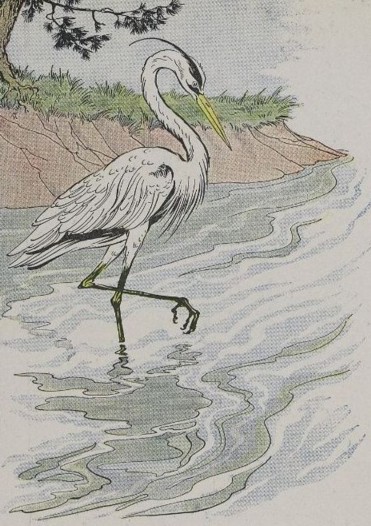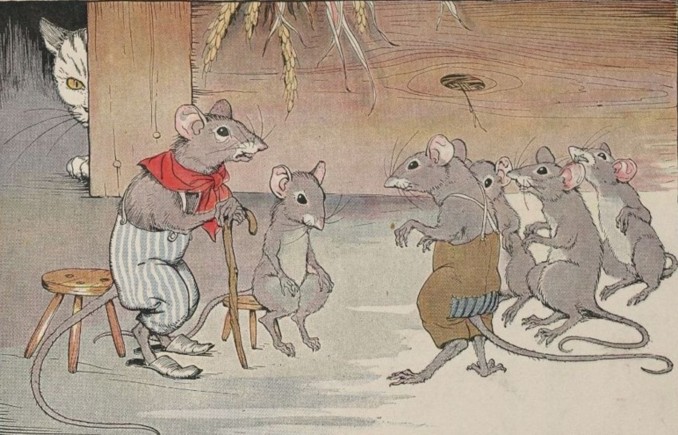| 1. glimpse | /glimps/ |
| -when you see something or someone for a very short time | |
| After having a glimpse of the sea, she immediately fell in love with it. | |
| 2. queer | /kwir/ |
| -strange, unusual, or not expected | |
| She had a queer expression on her face. | |
| 3. embrace | /em-BREYS/ |
| -when you put your arms around someone | |
| After not seeing each other for a long time, she embraced him tightly. | |
| 4. delight | /de-LAYT/ |
| -(something or someone that gives) great pleasure, satisfaction or happiness | |
| She felt so much delight when she saw her child’s achievement. | |
| 5. errand | /ER-end/ |
| -a short trip you make to do something | |
| She went out of the house to run some errands. |
“Have you heard the wonderful news?” cried the Fox in a very joyful and excited manner.
“What news?” asked the Cock very calmly. But he had a queer, fluttery feeling inside him, for, you know, he was very much afraid of the Fox.
“Your family and mine and all other animals have agreed to forget their differences and live in peace and friendship from now on forever. Just think of it! I simply cannot wait to embrace you! Do come down, dear friend, and let us celebrate the joyful event.”
“How grand!” said the Cock. “I certainly am delighted at the news.” But he spoke in an absent way, and stretching up on tiptoes, seemed to be looking at something afar off.
“What is it you see?” asked the Fox a little anxiously.
“Why, it looks to me like a couple of Dogs coming this way. They must have heard the good news and—”
But the Fox did not wait to hear more. Off he started on a run.
“Wait,” cried the Cock. “Why do you run? The Dogs are friends of yours now!”
“Yes,” answered the Fox. “But they might not have heard the news. Besides, I have a very important errand that I had almost forgotten about.”
The Cock smiled as he buried his head in his feathers and went to sleep, for he had succeeded in outwitting a very crafty enemy.
The trickster is easily tricked.
| 1. | What was the wonderful news according to the Fox? |
| 2. | What did the Fox ask the Cock to do? |
| 3. | What did the Cock do instead? |
| 1. | What do you think is the Fox planning to do? |
| 2. | Was the Cock correct in outwitting the Fox? Why or why not? |
| 3. | Why do you think the Cock did not trust the Fox? |
| 4. | Do you agree with the moral of the story? Why or why not? |
| 5. | How do you think it is possible for a trickster to be tricked easily? |
| Grammar 文法 |
Pronunciation 発音 | Vocabulary 単語 |
Comprehension 理解 |
|
|---|---|---|---|---|
 GOOD GOOD |
文法の誤りはほとんどなく、完全な文章で話すことができる | ほとんどの単語をはっきりと正しく発音することができる | 習った表現を適切に使うことができる | 文章を理解し、質問に正しく答えることができる |
 FAIR |
文法の誤りはあるが、完全な文章で話すことができる | 発音の練習が必要な言葉がいくつかある | たまにミスはあるが、習った表現を適切に使うことができる | 文章を完全に理解するのは難しく、質問に正しく答えられないときもある |
 POOR |
文章で話すのは難しく、単語だけで話すことができる | 発音の練習が必要である | 習った単語と表現を少しだけ使うことができる | 文章を理解するのは難しく、質問に答えるのは難しい |
An eBook from The Project Gutenberg.
This eBook is for the use of anyone anywhere at no cost and with almost no restrictions whatsoever. You may copy it, give it away or re-use it under the terms of the Project Gutenberg License included with this eBook or online at www.gutenberg.org








